If you are new to bicycle touring and just started searching for the best panniers for your first tour, I bet the name you see everywhere is Ortlieb. The German produced bags are a legend and have earned themselves a reputation for being the best panniers for cycle touring. Everybody praises their quality and durability.
There is one problem: they are pricey. Ortlieb Back-Roller Free, beloved by the bicycle tourers, costs about 120-140 euros.
Luckily, you can get something as good as Ortlieb for slightly more than half the price. Ladies and gentlemen, let me present you the Crosso panniers.
Crosso panniers were created by a group of Polish bike touring enthusiasts who, in 2004, started a craft production in a garage. Their first users were simply friends and friends of friends of the owner. Crosso gained more users simply by word of mouth and is now the most popular pannier brand in Poland.
Crosso Dry 60 vs Ortlieb Back-Roller Free
Doubts about choosing anything but the top-rated Ortlieb panniers? Check out the technical specs comparison of Crosso Dry 60 and Ortlieb Back-Roller Free to see which one will be a better option for you.
| Crosso Dry 60 | Ortlieb Back-Roller Free | |
|---|---|---|
| Volume | 60 l | 40 l |
| Material | polyester | polyester |
| Seams | welded | welded |
| Weight | 1870 g | 1680 g |
| Pockets | no additional pockets | one zipped pocket inside |
| Shoulder strap | No | Yes |
| Closing system | roll-top (single buckle) | roll-top (centre buckle + outer buckles) |
| Mounting system | Crosso mounting system with non-adjustable metal hooks or Click-system with adjustable plastic hooks | Adjustable plastic hooks |
| Price | 60 € (Crosso mounting system) / 87 € (Click system) | 120-140 € |
Crosso panniers – pros and cons
Durability
The Crosso panniers have been my companion on all my trips since 2018. I have cycled about 13 000 kilometres with them and tested them in all possible conditions.
They have travelled with me through the washboard roads of the Kyrgyz Tien-Shan mountains and survived the rain and snow in Norway. They carried half of my life belongings when moving back from Belgium to Poland and withstood a series of train, ferry and flight trips.
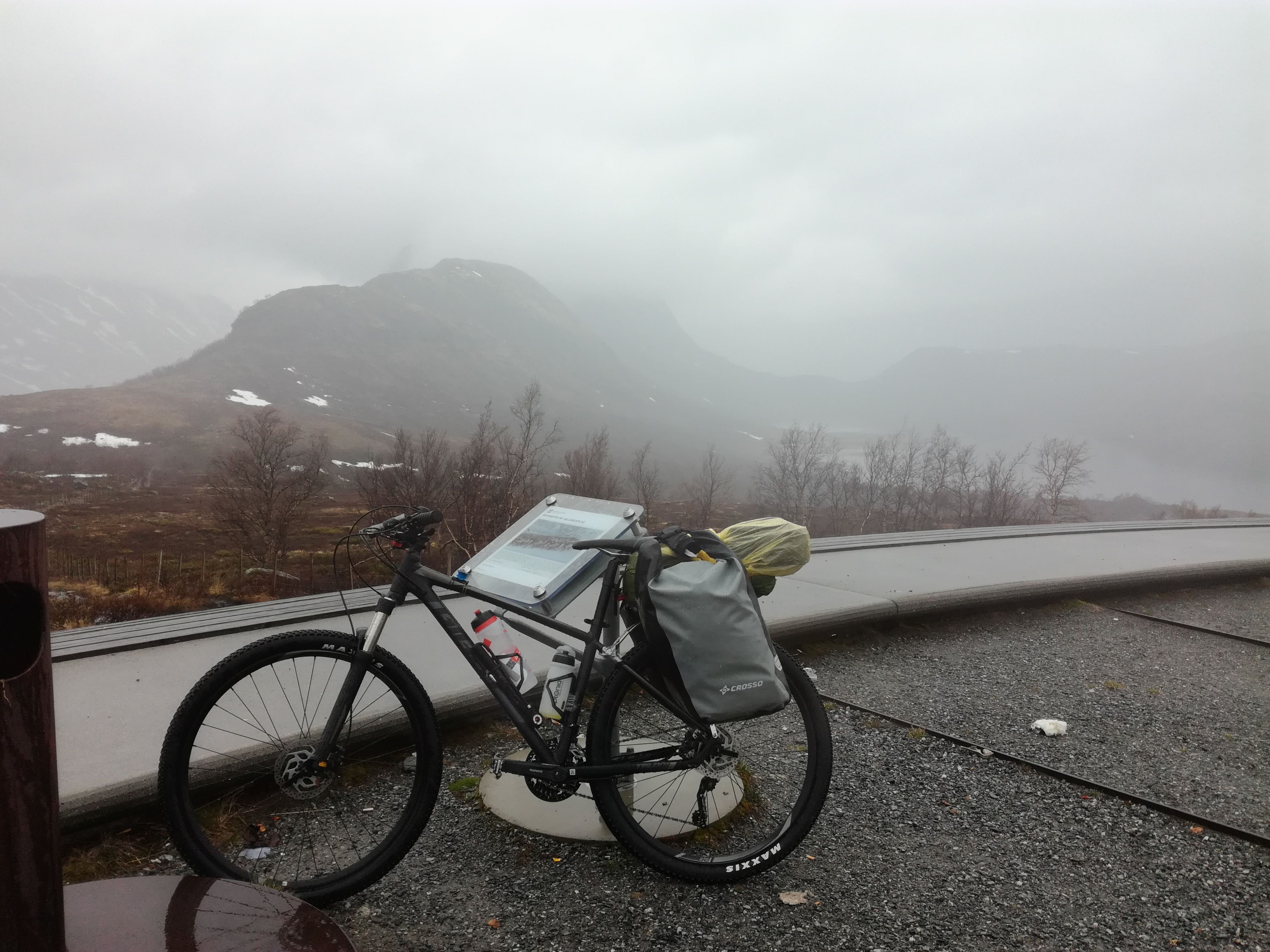
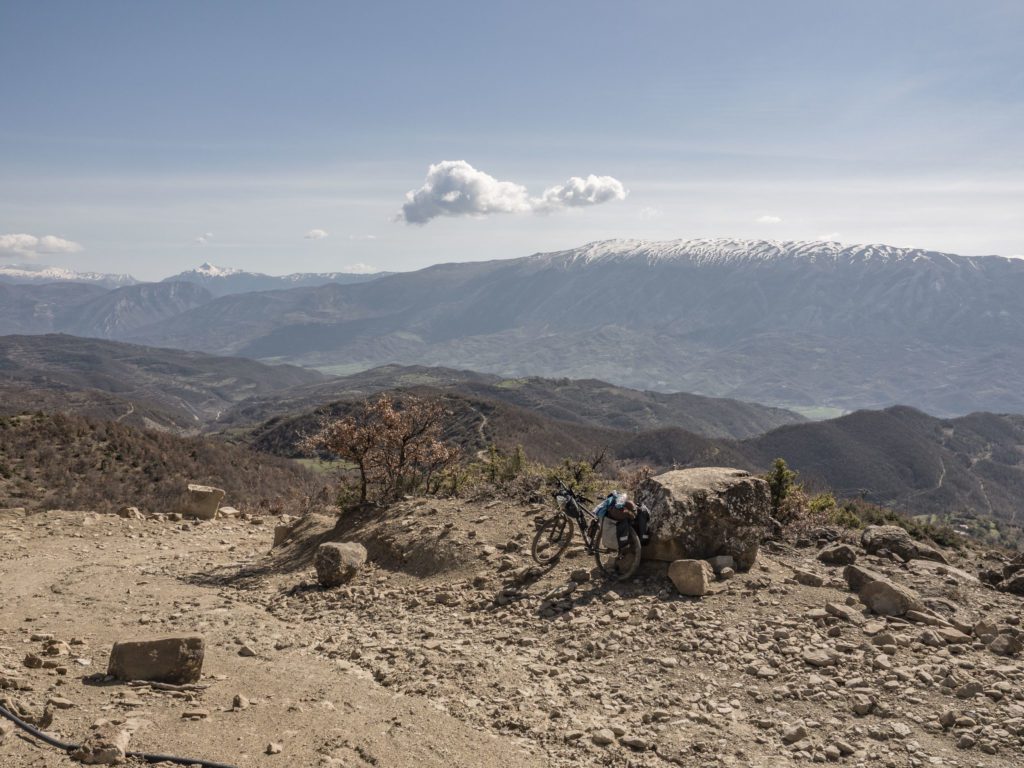
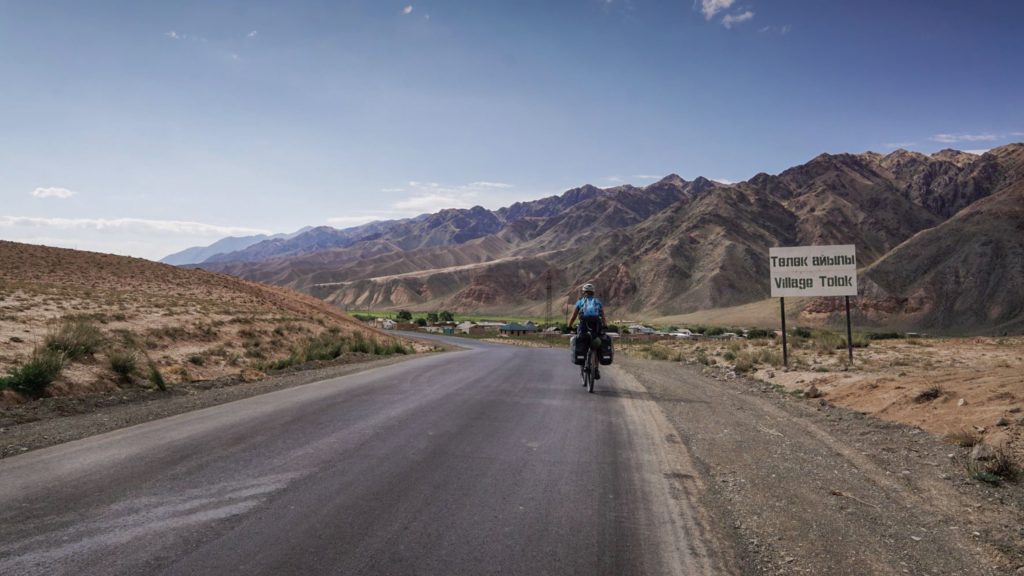
Confession time: I am not someone who takes the best care of their gear. My panniers have been tossed, dragged and stuffed to their limit. I definitely don’t show them enough love and don’t clean them as much as I should. But my Crosso Dry panniers have always been forgiving and never let me down, although they’ve been through an ordeal.
The only issues I had were loose screws of the Click mounting system (you will find more details about it in the next paragraphs).
Mounting system
The Crosso Dry panniers come with two different mounting systems: Crosso and Click. I am using the Click system which is a bit more expensive. Which mounting system should you choose?
Crosso mounting system
The traditional Crosso system is more durable and simpler. It consists of two metal hooks that cannot be adjusted. You will have to make sure that your luggage rack is compatible with them. The lower hook of the pannier is also a bit impractical, and if you are going to put your panniers on and off the bike often, it might be annoying.
As I mentioned earlier, the Crosso mounting system is very durable but if for some reason one of the hooks breaks, it will be very difficult to replace it.
Read more about Crosso mounting system here.
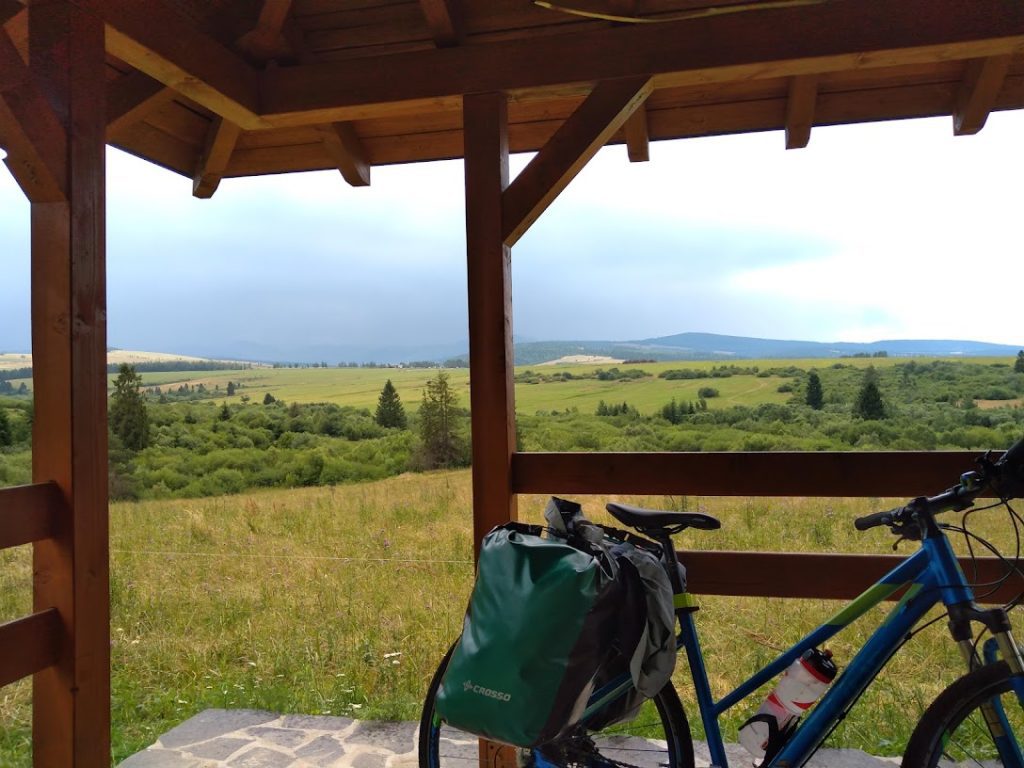
Click system
The Click system is a bit more similar to the mounting system used by Ortlieb. It consists of two upper hooks and a lower hook. All of them are made of plastic and attached to the pannier by a few screws. The width of the hooks can be easily adjusted.
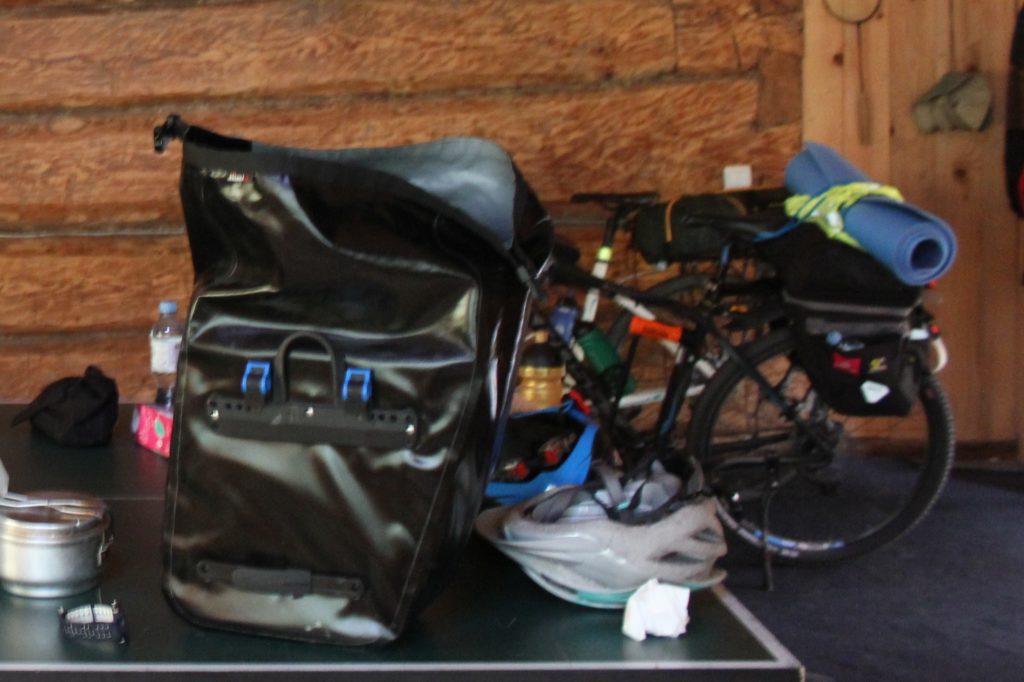
The Click system gives you more flexibility. In North Macedonia, I have travelled on a rental bike and I didn’t have to worry if my panniers would fit onto the luggage rack. When my luggage rack broke in Bosnia, I could find a replacement without any problems (if I had the traditional Crosso mounting, it would be much more troublesome).
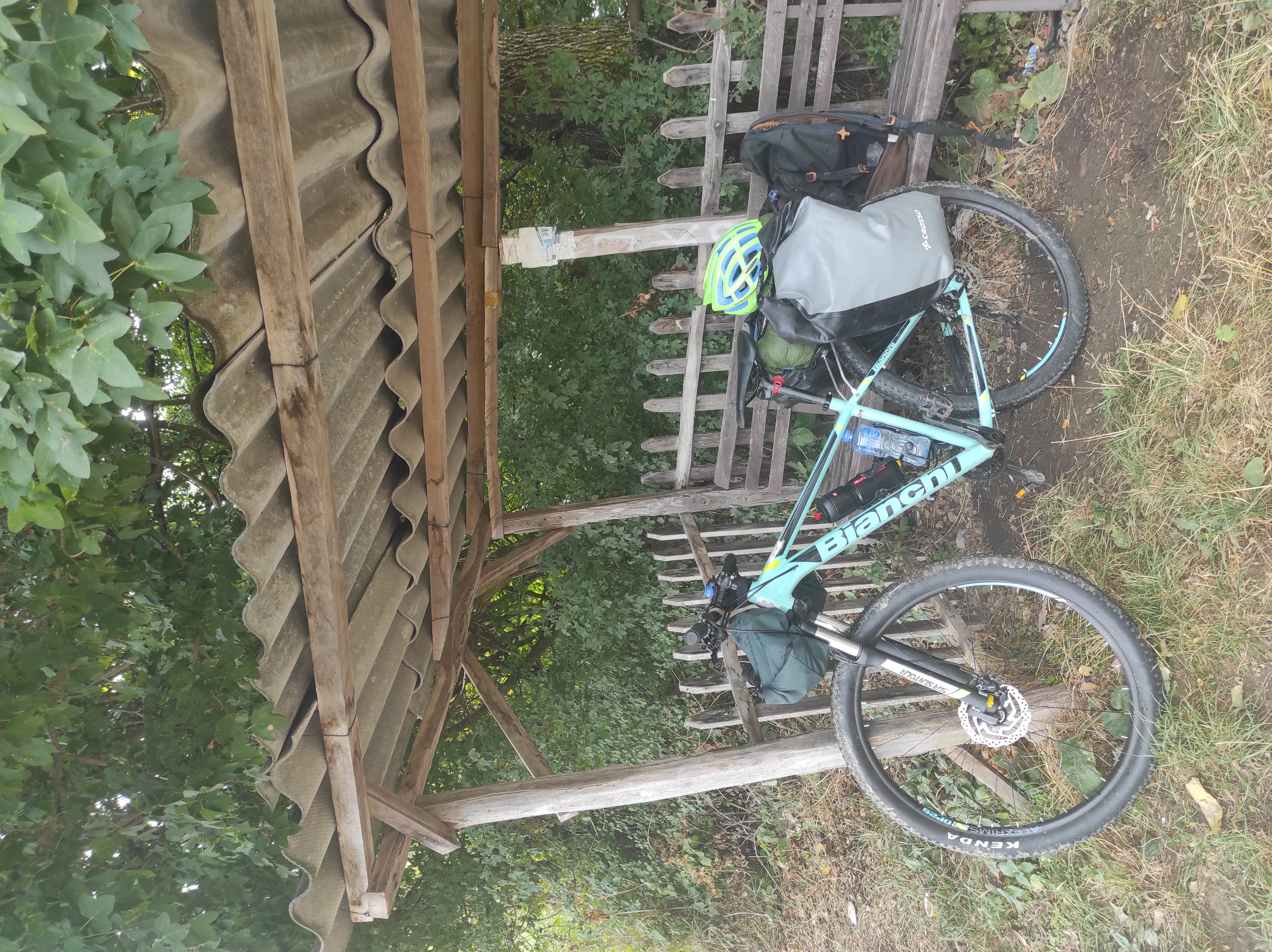
I also like how easy it is to install the panniers on the rack and take them off. One click and it’s done. The mounting is very stable and even on very bumpy roads, the panniers don’t jump.
Some cyclists I’ve spoken to worry that the plastic hooks would brake. After five years of extensive use, it never happened to me. The only problems I had with the Click mounting of my panniers were:
- A lost lower hook. It happened in Kyrgyzstan and the temporary fix was easy: I simply put a bungee cord around the pannier and the rack to secure a stable position. When I returned home, I ordered a spare hook for about 5 €.
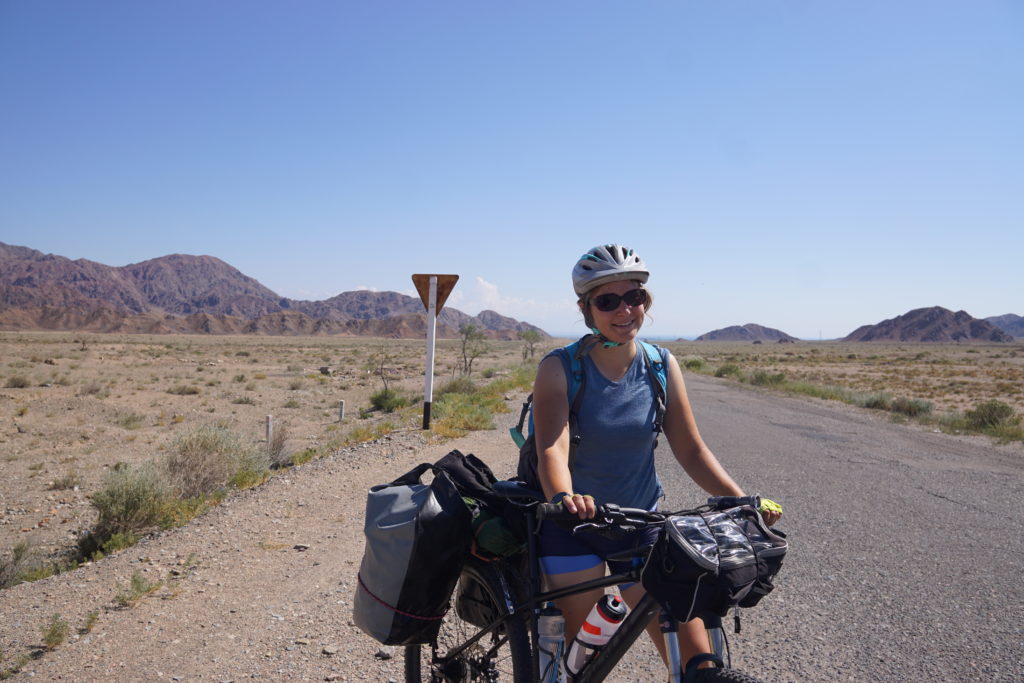
- A screw of the upper hook got loose and I lost it. I temporarily fixed it with a zip tie and added some duct tape just in case. If you are going to cycle a lot on bumpy trails, it’s better to carry a spare screw with you as the vibrations sometimes loosen the screws. You can also use Loctite to prevent it.
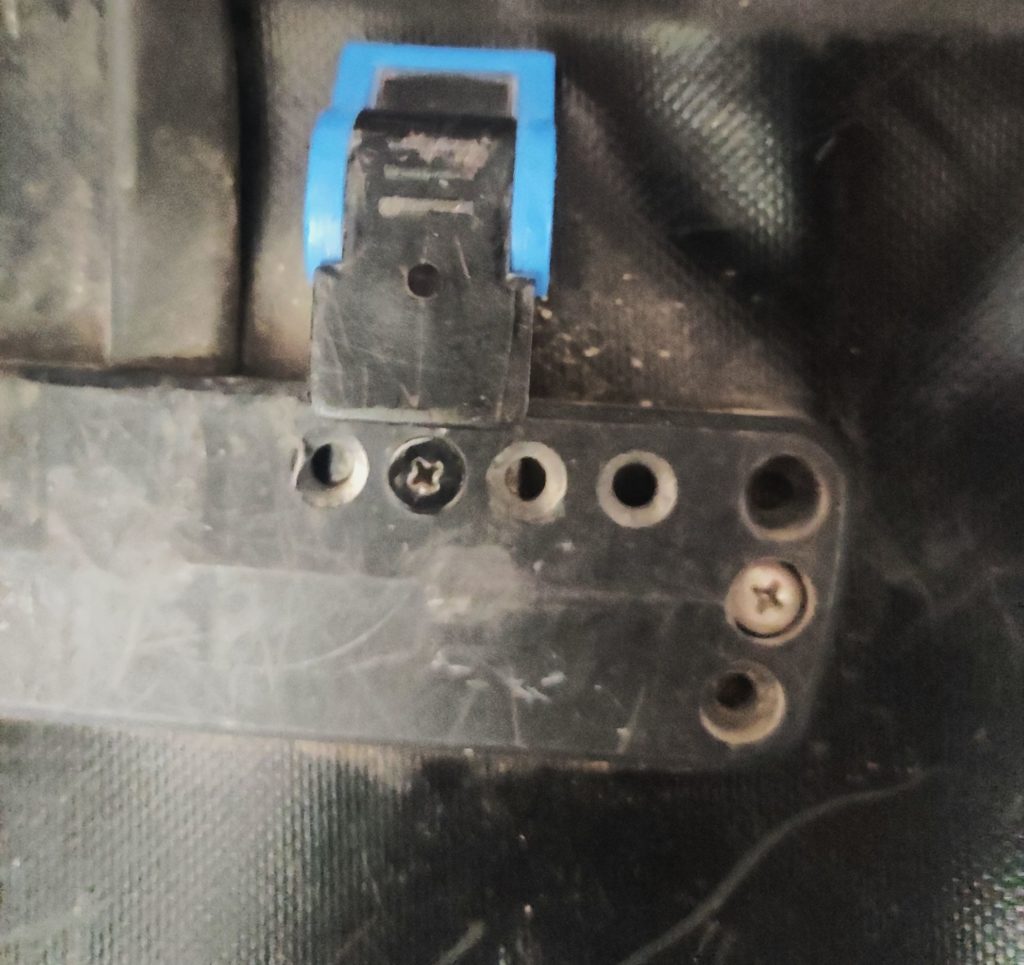
Size
Crosso Dry 60 are bigger than most panniers on the market. This can be both an advantage and disadvantage. With 60 litres of space, you can easily pack all your stuff in only rear panniers and a handlebar bag. I usually travel with camping gear and a computer and I never used the front panniers, even for my three-month-long trip around Europe.
The big volume comes with a price. Crosso panniers have no additional pockets and finding something in a 30-litre pannier can be difficult. You need a very good system to avoid spending too much time looking for that one thing that is somewhere on the bottom of the bag.
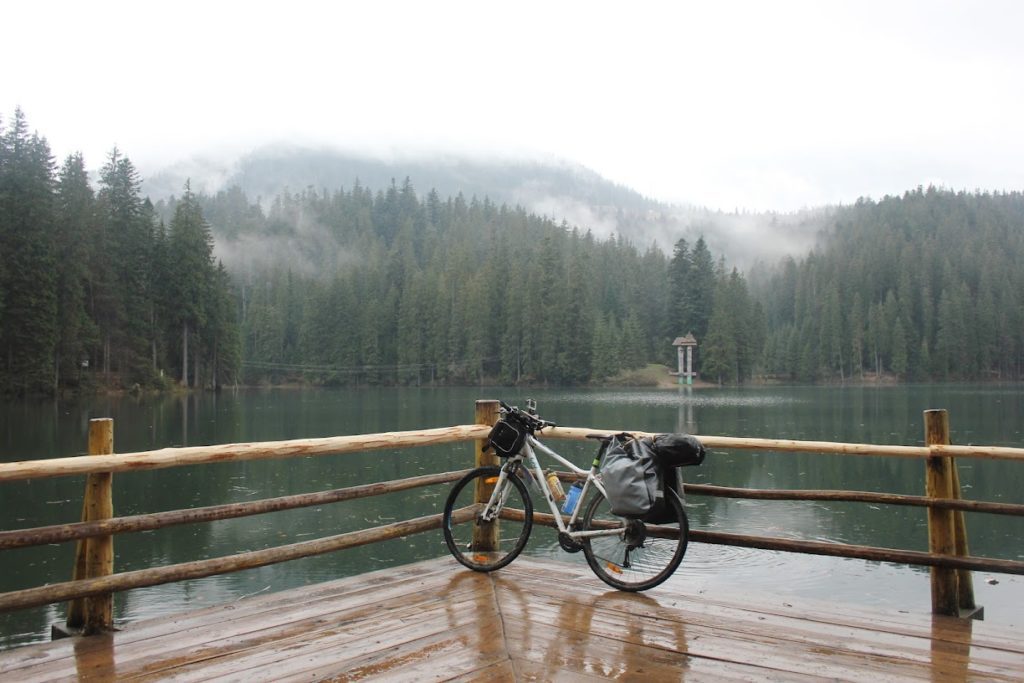
I usually pack my stuff in smaller bags and put them in the panniers in an order that is logical to me. I wouldn’t mind having some additional pockets that would make it easier to control the mess.
If you’re curious about what I pack for my bicycle tour, check out this article.
Material
A lot of cycle tourers will be sceptical about using panniers that are not made of Cordura. The polyester used in the Crosso Dry bags is, however, very durable and easy to clean. You can just splash the panniers with the garden hose or clean them with a wet cloth.
After five years of extensive use, the outer layer of the fabric started to peel off near the buckle and on the bottom, but it doesn’t affect the waterproof qualities of the panniers so far. You can fix them using tenacious tape.
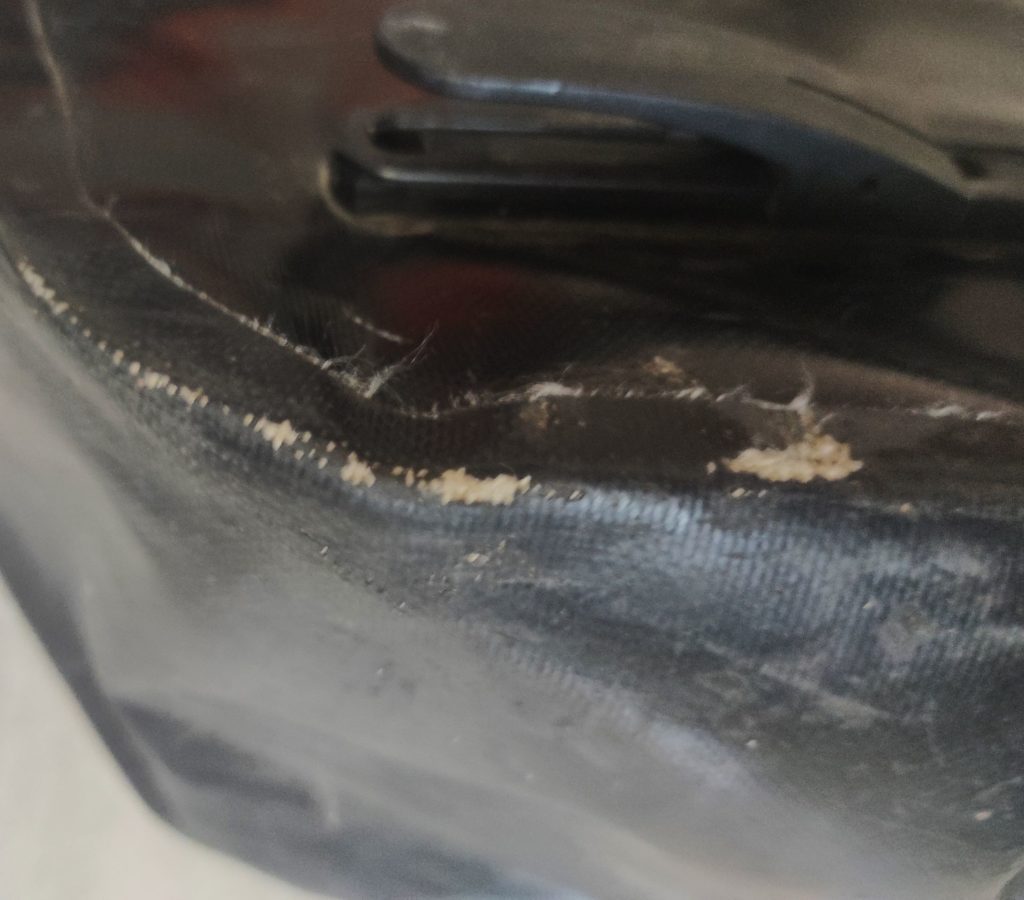
Thanks to the welded seams, the Crosso panniers are completely waterproof. I have tested them in heavy rains and my stuff always stayed dry (provided, of course, I rolled the closing at least 2-3 times).
Simplicity
I like the simplicity of the Crosso Dry bags although it also limits me in a way. There is no strap that would make the carrying easier (the small handle in the back is not the most convenient solution). I like the simple closing system but in the very unlikely event of a broken buckle, you won’t be able to close the pannier at all.
Summary
After five years of travelling with Crosso panniers, I know it was a good choice. If you are looking for the best panniers for cycle touring but your budget is limited, they will be a great alternative to Ortlieb.
You can order the Crosso panniers directly from the producer via this website.
If you have any questions about Crosso panniers, let me know in the comments!
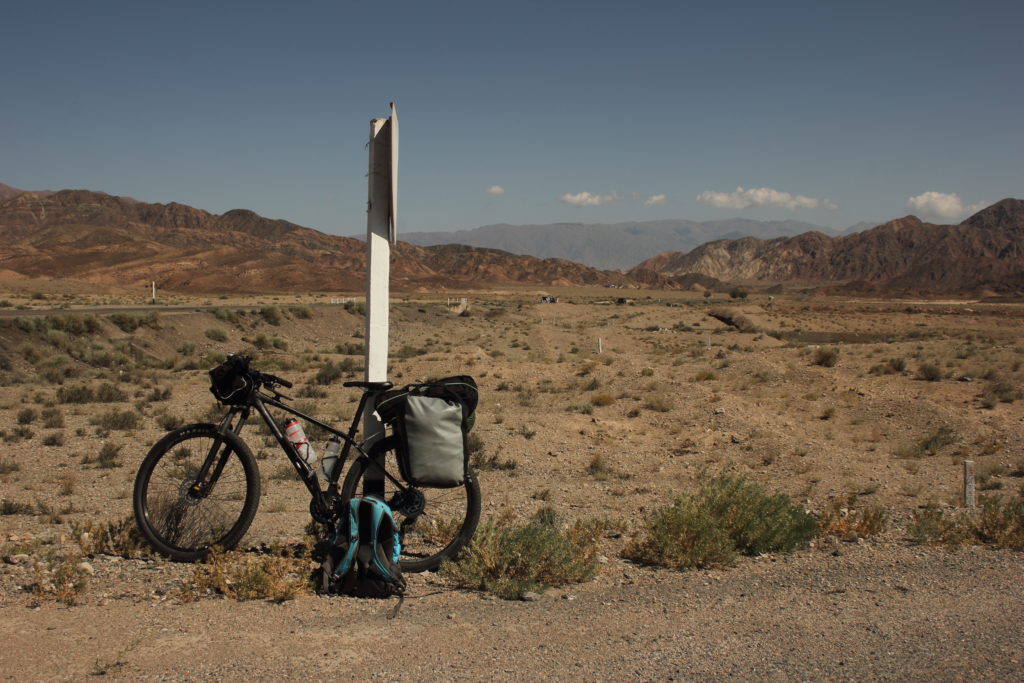
Pingback: Bicycle touring gear list - Wobbly Ride
Pingback: Best foods for bicycle touring - a dummies guide - Wobbly Ride